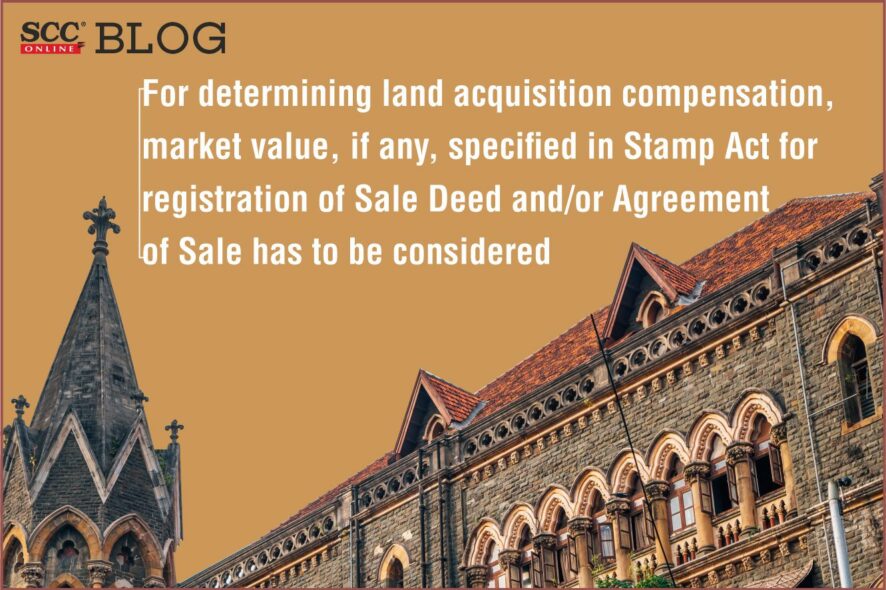Bombay High Court: The Division Bench of S.V. Gangapurwala and Vinay Joshi, JJ., expressed that only because 83% of the property for the project is acquired, it would be egregious not to apply the provision of the statute for determination of compensation.
Further, the Bench added that, if by private negotiation, the lands are acquired the compensation paid cannot be the criteria to determine the market value for the claimants who do not agree to private negotiation.
Petitioner had assailed corrigendum dated 11-9-2018, under the said corrigendum, the circular dated 30-8-2019 was not made applicable to the acquisition for the Nagpur-Mumbai Express Highway Project.
Further, under the Government Resolution dated 13-8-2018, the Government had taken a decision to consider the ready reckoner as per the Maharashtra Stamp Act, 1958 for the purpose of determining the market value of the land. The said decision was sought to be escaped for the Nagpur-Mumbai Express Highway Project.
Petitioner’s counsel submitted that the respondents cannot differentiate between the projects while determining the compensation amount and same would be violative of Article 14 of the Constitution of India.
Advocate General for the State submitted that guidelines were provided for the determination of the ready reckoner rates under the Indian Stamps Act. Further, it was submitted that in case the award was passed, the petitioners have right to assail before the executive. Before the executive, the petitioner can raise all the contentions.
High Court stated that the acquisition made for Nagpur-Mumbai Express Highway is under the provisions of the Maharashtra Highway Act and if the acquisition is under the Maharashtra Highway Act, then the provisions of Section 26 to 30 of Right to Fair Compensation and Transparency in Land Acquisition, Rehabilitation and Resettlement Act, 2013 are applicable for determination of the compensation.
Section 26 of the Right to Fair Compensation Act lays down the following criteria for determination of compensation.
Bench remarked that, for determining the compensation amount, the market value, if any, specified in the Stamp Act for registration of Sale Deed and/or Agreement of Sale as the case may be in the area of the land situated has to be considered.
Powers of Executive
The Executive in absence of any provision has got powers to issue Government Resolutions, Circulars, and Administrative Instructions under Article 162 of the Constitution of India.
In case, no provision exists governing the field, then in that case, the Government Resolutions and Circulars can be issued, exercising executive powers. If a particular field is governed by the statute and/or rules, then the executive instructions has to be in conformity with the statutory provisions and the Rules. In exercise of executive power, the Executive cannot issue instructions, circumscribing the statutory provisions and the rules.
High Court held that executive instructions cannot supplant statutory provisions or the rules.
In light of the above discussion, the impugned corrigendum dated 11-9-2018 was set aside and the petitioner has a remedy to assail the award before the appropriate forum in accordance with law as may be permissible. [Radhika J. Bhalerao v. State of Maharashtra, 2022 SCC OnLine Bom 856, decided on 24-32022]
Advocates before the Court:
Mr. Nikhil Mengade with Mr. Dhaval Deshpande, Rahul Lathi, Yash Jariwala and Pranay Dave, for the Petitioners in all the Petitions.
Mr. Vijay Patil, for Respondent No.3 in WP No.3683 of 2020 and WP(St.) No.94031 of 2020.
Mr. A. A. Kumbhakoni, Advocate General with Mr. P. P. Kakade, G.P. with Mr. Akshay Shind, ‘B’ Panel Counsel with Mr. R. M. Shinde, AGP for the Respondent-State in all the Petitions.







